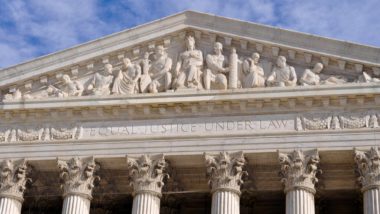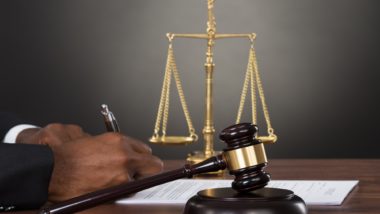Top Class Actions’s website and social media posts use affiliate links. If you make a purchase using such links, we may receive a commission, but it will not result in any additional charges to you. Please review our Affiliate Link Disclosure for more information.
Amid a class action against cryptocurrency exchange company Coinbase and with stories about cryptocurrency theft in the news, consumers may be asking themselves whether it’s safe to invest in crypto and who is responsible for hacks.
In the class action against Coinbase, several plaintiffs are claiming the company either froze their cryptocurrency accounts or allowed them to be stolen.
“Because of the extreme volatility of cryptocurrencies’ value — with freefalls of 40% within 24 hours not unheard of – the inability to access an account to sell, buy, or trade cryptocurrency leads to severe financial loss,” the lawsuit alleges. “Making matters worse, Coinbase fails to timely respond to customer pleas for support and help, and also fails to preserve and safeguard customer funds as it promises.”
With other stories about cryptocurrency theft having recently come out (most notably the recent arrests in connection with the 2016 Bitfinex hack), consumers are justified in questioning the safety of crypto. So who is liable for the theft and hacking of cryptocurrency accounts?
Agustin Barbara, a managing partner with The Crypto Lawyers, said that when you’re dealing with a cryptocurrency, you are your own bank, and the responsibility falls on you.
“More importantly, because there are so few firms with the necessary tools and expertise needed for handling cryptocurrency matters, it can be challenging for consumers to vindicate their rights,” Barbara told Top Class Actions.
Barbara said consumers are just beginning to dabble in this space, and they don’t realize how many vulnerabilities there are.
“In a centralized platform, for example — Crypto.com or Coinbase — the ownership of your crypto is actually controlled by a single entity. Therefore, your assets are at risk,” Barbara said.
While he says consumers are responsible for their own crypto assets, he also said there are certain protocols Coinbase should inherently have that it does not.
“If they (Coinbase) know that so many of these things are constantly being exploited, why aren’t they taking it more seriously? They shouldn’t have to be doing it under the threat of regulatory agencies, but rather to protect their customers,” Barbara said.
Rich Sanders, lead investigator and principal at CipherBlade said Coinbase is insured against a hack of Coinbase, not against a hack of an individual’s account because that individual failed to secure their account credentials.
“In short: what a dumpster fire,” Sanders said. “One, the responsibility to secure an individual’s cryptocurrency exchange account is the individual’s. Exchanges provide security options, users decide which to use. I have never seen a single hack of a cryptocurrency exchange account in which the user of the exchange did not have a major cybersecurity gaff (use of SMS as a sole vulnerability, password reuse, etc.) I would bet you the entirety of my professional credibility such is the reality for Plaintiffs in that action.”
According to Sanders, an exchange account being frozen by an exchange after a user falls victim to a scam or is hacked is a judgment call made by compliance teams, including a factor to keep users safe from themselves.
Exchange accounts can be locked and are more often locked for compliance reasons, such as through transaction analysis, which has nothing to do with an individual’s account compromise or falling victim to a scam Sanders said.
“I doubt, and doubt highly, all plaintiffs are even in the same ‘category’ here, and candidly, I’m not sure if the lawyers representing the plaintiffs here even know what questions to ask to determine if someone would be an eligible claimant,” Sanders said.
According to Sanders, the plaintiffs in the Coinbase lawsuit were not misled about security.
Much of the lack of clarity surrounding the legal standing of cryptocurrency is due to its newness relative to more traditional currency and payment systems, but there are ways for individuals to keep their crypto secure.
Cryptocurrency users can protect themselves by doing things like:
- Using secure passwords for their crypto accounts
- Changing passwords regularly
- Avoiding accessing cryptocurrency on public wi-fi networks or on anything other than a secure device on their home internet
- Using multiple crypto wallets
- Using “cold” wallets, or crypto wallets that are not connected to the internet
As well as this, crypto and its trading websites will begin to see greater legislation in the near future; 33 states and Puerto Rico have pending legislation concerning cryptocurrency in the 2021 legislative session.
[getsocial app=”sharing_bar”]
Don’t Miss Out!
Check out our list of Class Action Lawsuits and Class Action Settlements you may qualify to join!
Read About More Class Action Lawsuits & Class Action Settlements:
ATTORNEY ADVERTISING
Top Class Actions is a Proud Member of the American Bar Association
LEGAL INFORMATION IS NOT LEGAL ADVICE
Top Class Actions Legal Statement
©2008 – 2024 Top Class Actions® LLC
Various Trademarks held by their respective owners
This website is not intended for viewing or usage by European Union citizens.















4 thoughts onCrypto experts and lawyers weigh in on cryptocurrency liability
I would love to join any class action against Coinbase . They acted as facilitator to grease the skids . I wired transferred money to them and they allowed coinhub to steal it and admitted Coinhub was a Ponzi scheme but allows their platform to be used for coinhub to scam money from unsuspecting clients who thought they were participating in a legit investment
Thanks for sharing the blog with informative content. Kindly share more content with us. I found it very helpful.
Please add me
binance.us has locked me out of my account because of a theft of some of my crypto. I still had some cryptocurrency in my account when they locked me out. This is so wrong. Is there anything I can do about it to regain entry into my account?